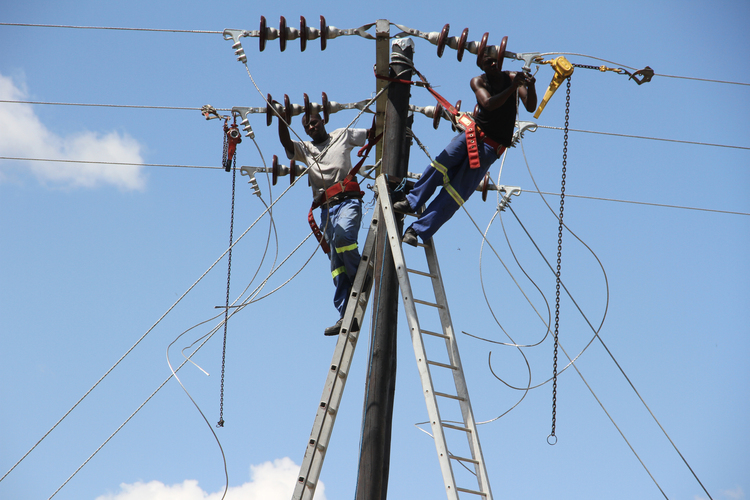
The Sunday Mail

Africa Moyo
THE Zimbabwe Energy Regulatory Authority (Zera) and the Ministry of Energy and Power Development are finalising consultations on the imminent power tariff hike, as energy experts raised alarm that continued sub-optimal prices will bloat Zesa (Zimbabwe Electricity Supply Authority)’s debt.
There are real fears that a delay in effecting a tariff hike will likely feed into Zesa’s huge debt as the power utility is currently importing power at US14c per kilowatt hours (kWh) and selling it at US9,6c.
The cost is even higher for emergency power imports at US18c.
For the past six months, the country has been enjoying uninterrupted power supplies on the back of imports from South Africa’s power utility, Eskom.
Last week, Zera’s chief executive officer, Engineer Gloria Magombo said a new tariff will be ready soon.
“Zera conducted its analysis based on the submissions made by various stakeholders and the final determination is made in terms of a consultation process between Zera and the Ministry of Energy and Power Development as provided for by the Electricity Act (Chapter 13:19) of 2002, Section 53 (1).
“This process is currently going on (and) the new tariff will be announced in due course but the determination takes into account stakeholders’ inputs, proposition and suggestions,” said Eng Magombo.
Section 53(1) of the Electricity Act (Chapter 13:19) indicates that “no prices or tariffs in connection with the provision of electricity service or operation of an electric power system by a licensee or proposed license shall have to effect unless such prices or tariffs have been approved or, in the case of any service determined by the commission after consultation with the Minister, fixed by the Commission in terms of this section”.
The new tariff will be determined using the approved Rate of Return (RoR) methodology as provided in Section 52 of the Electricity Act.
The RoR methodology was approved by Government in 2004.
Energy experts say the current tariffs do not reflect the cost of imported power, a development that might have the adverse effect of choking the parastatal with new debt.
Former Zesa chief executive officer, Engineer Ben Rafemoyo told The Sunday Mail Business recently that a new tariff, although uncomfortable for industry, “is a bullet we must bite” as imports are coming “at a higher price”.
“Not doing it in time will just delay the right thing but later on it will catch up with us. Admittedly, our economy is not in its best shape and whatever figure, no matter how justifiable it is, will become a burden to customers, but guess what: the cost of not having power is a lot more than having power at the right price.
“In my view, it is not sustainable (to continue with a lower tariff). We will reach a stage where they (Zesa) will fail to service their creditors. That is the fear.
“As a country, we need to quickly put our house in order in terms of pricing tariffs and so on,” said Eng Rafemoyo.
He said it is important for Zesa to show the cost build up of the new tariff in order to promote transparency.
Zesa is believed to have applied for a tariff increase to US14c per kWh, which is in line with regional averages.
Eng Rafemoyo also contends that using the RoR methodology to determine the new tariff will not only allow Zesa to break even but build up cash reserves for future contingencies.
Local power projects such as the expansion of Kariba South and Hwange’s units 6 and 7 – expected to add a cumulative 900MW to the grid by 2018 – are currently underway.
Peak power demand has since declined to 1 400 megawatts (MW) from 2 200MW in 1999 owing to reduced economic activity.
Independent contractors will also set up three solar plants that will feed an additional 300MW to the grid.
Added Eng Rafemoyo: “So, overally, as an energy enthusiast, I am happy that a number of projects which were talked about for many, many years have seen the light of day and the more we do, the more we get out of this mess because depending on power imports as you know; they can only sell excess to their requirements and you cannot have security of supply when you depend on other people.”
It is forecasted that the country will be a net exporter of power in the medium term.



